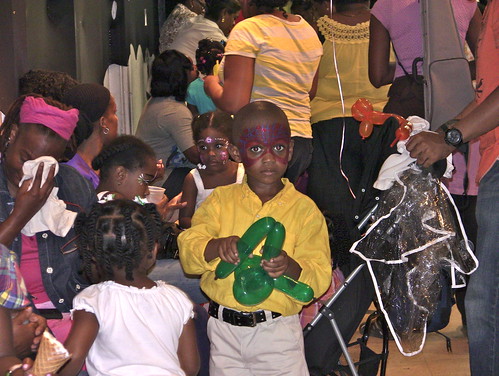BROOKLYN—Every night for three months, eager players in Ablib Steel Orchestra practiced for the most important weekend of the summer: Labor Day.
As media reports mounted about the violence at the West Indian American Day Carnival Parade, some parade participants felt the good in the annual event was lost and worried that the parade’s future could be in jeopardy. There was no documented evidence that the city is planning to end the event, which draws more than 1 million visitors to central Brooklyn each year. But that did not stop fears and rumors from spreading.
“It would be a big loss to us because a lot of our summers are spent preparing for some portion of the Labor Day Carnival, whether it be Panorama like we do, or to play Mas and other competitions,” said Shanelle County, junior captain of Adlib’s band, which won the Steel Band Panorama competition this year.
Sporadic bouts of violence erupted throughout the weekend, with the NYPD attributing three shootings and five victims to the parade. Early reports however had upward of 52 shootings citywide and initially failed to disassociate the shootings from the weekend celebration.
“All this talk of violence is what the media has conveyed, but those shootings had nothing to do with the parade,” said Jean Alexander, Director of public relations and marketing of West Indian American Day Carnival Association, which organizes the parade along with city officials.
Neither the 67th Precinct Community Council nor the New York Police Department could be reached for comment.
Local residents say descriptions of the parade neglected to acknowledge the hard work of participants, who spent months practicing, and planning for the weekend—particularly the youth.
“[The Parade] is about having a good time,” says County. “It’s about enjoying yourself, it’s about basking in the culture.”
Parade participants were also concerned with how stopping the parade would affect local business on one of the year’s most lucrative weekends.
“This is millions of dollars the city and people would lose if they stopped it,” said Virginia Brown, owner of Appy Virte, a vendor that sells Jamaican home cooking at the parade for the past 25 years.
East Flatbush community program Sesame Flyers International takes pride in its participation in the parade. They consistently win the Masqueraders Camp—known as “Mas” camp—competition, which is the most known element of costumes, floats and dance in the parade.
“It means a whole lot to the community and generates a whole lot of money but we don’t really get good treatment from city officials,” said Joseph Charles, founder of Sesame Flyers.
Still some argue that stopping the parade may be necessary. Devon Strachan, a first time vendor on Eastern Parkway but longtime parade spectator thinks the parade has lost some of its appeal because of the violence. “If that many people are getting shot, you just gotta say, if that’s what you need to do to stop the violence,” he said, “then that’s what you have to do.”

